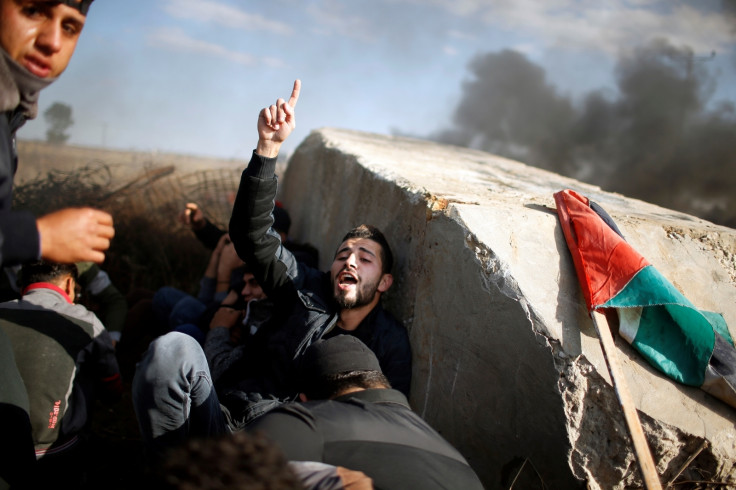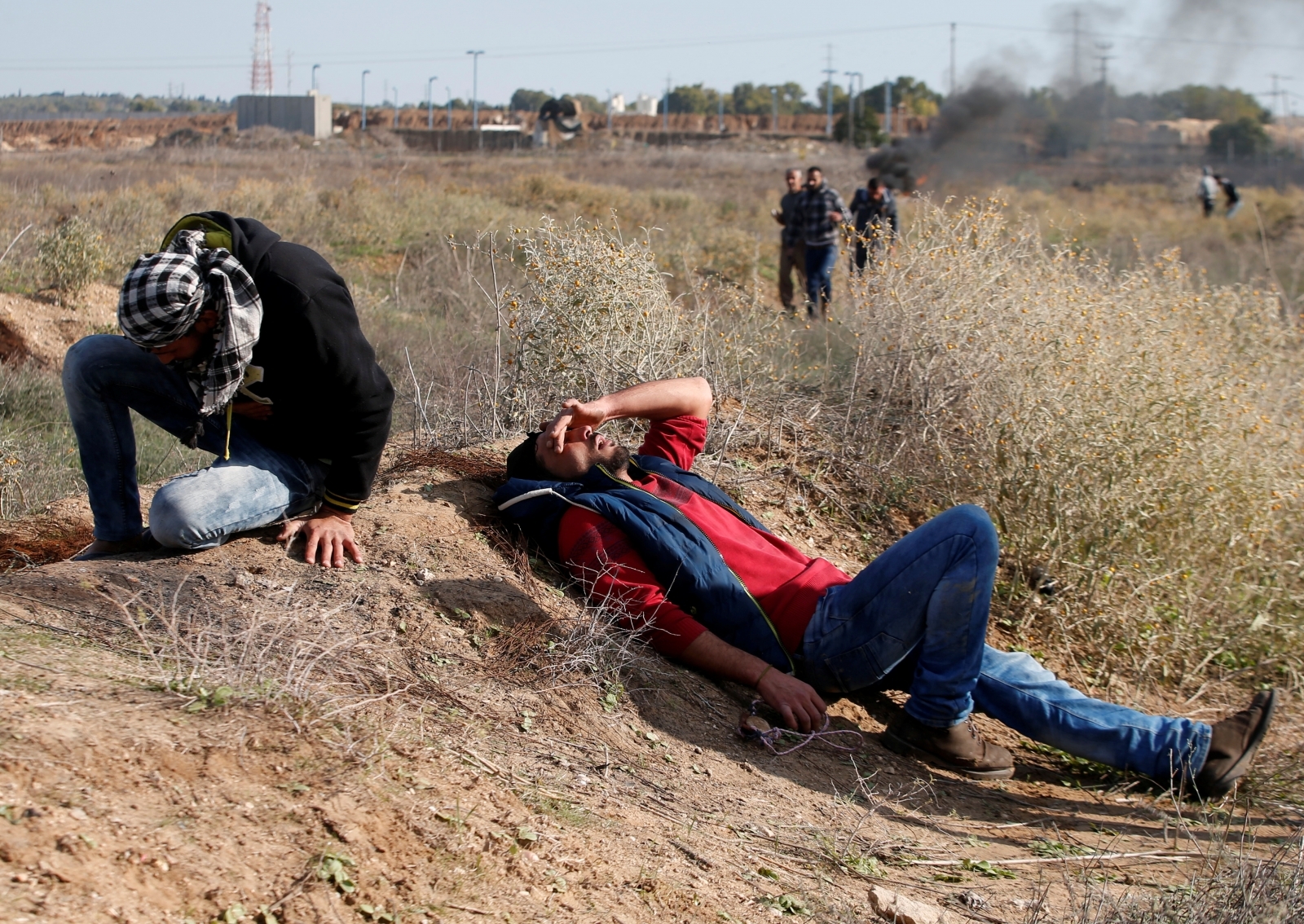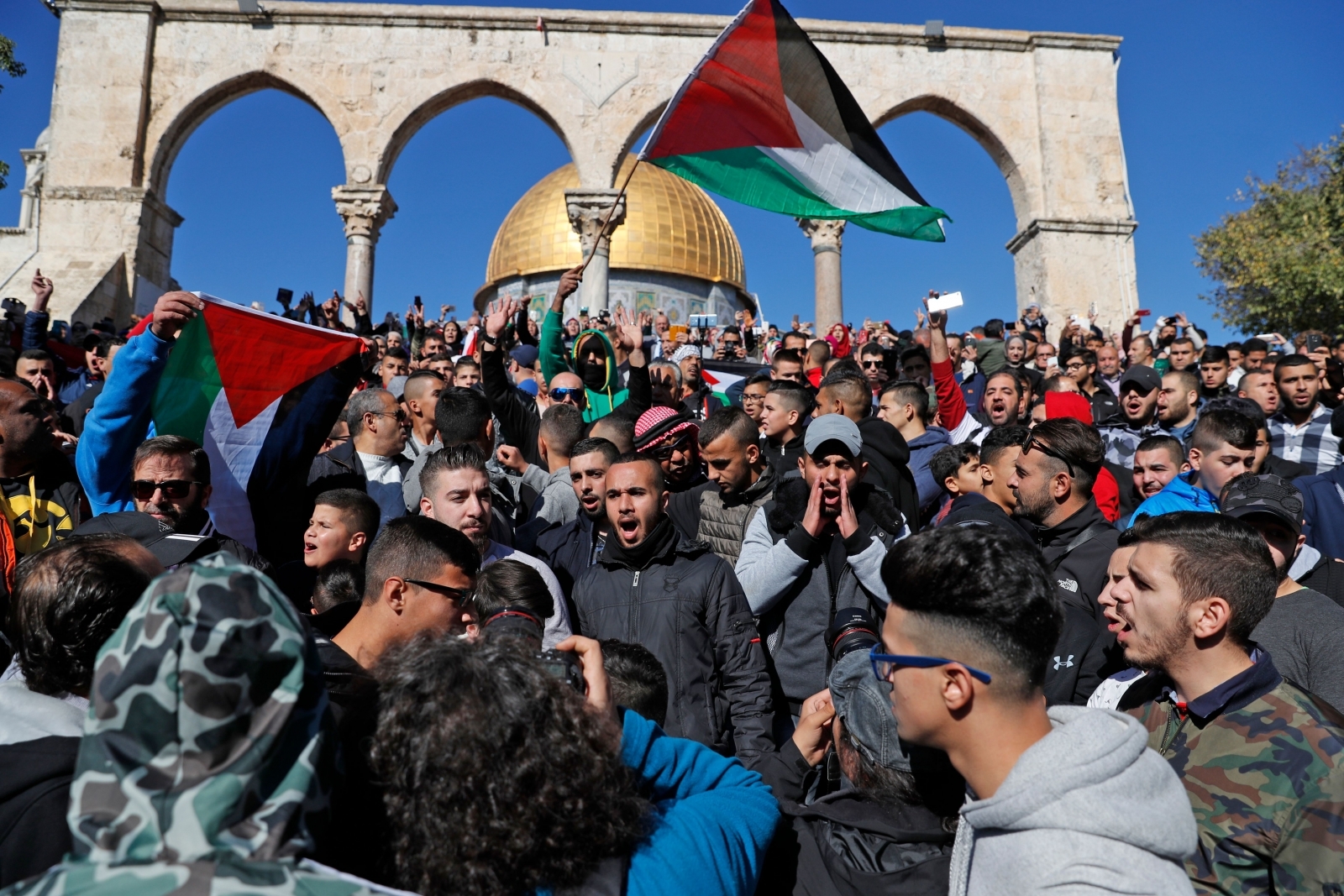Photos: Palestinians and Israeli police clash after Friday prayers over Trump's Jerusalem decision
In the occupied West Bank, Palestinian stone-throwers traded volleys in the streets with soldiers firing tear gas and rubber bullets.
Palestinians clashed with Israeli troops across the West Bank and Gaza after Friday prayers to protest against US President Donald Trump's recognition of Jerusalem as Israel's capital. Protesters burned Israeli and US flags or stomped on Trump posters in displays of anger.

In the West Bank, demonstrators torched heaps of tyres, sending columns of thick black smoke rising over the cities of Ramallah and Bethlehem. Palestinian stone-throwers traded volleys in the streets with soldiers firing tear gas and rubber bullets. Clashes also erupted on the border between Gaza and Israel.
At least one man died in the protests. The Palestinian Health Ministry said a 30-year-old Gazan man was killed and dozens more were wounded in skirmishes between Israeli forces and protesters along Gaza's border with Israel. The ministry said that Mohammed Al-Masri died after being struck by live fire east of Khan Younis in the southern Gaza Strip, while more than 35 Palestinians were injured, two seriously.
It was the first death since clashes erupted across the Palestinian territories after President Donald Trump recognised Jerusalem as Israel's capital. The Israeli military said in a statement that during clashes along the border fence soldiers "fired selectively at two main instigators" and confirmed hitting them.
















Police and Muslims scuffled in the Old City of Jerusalem, but the site was largely peaceful as worshippers dispersed quietly after noon prayers. The Old City is home to the Al-Aqsa Mosque compound, which is Islam's third holiest shrine – though it stands on the remnants of Judaism's holiest site. The preacher at Al Aqsa told worshippers that the city will "remain Muslim and Arab".
Around 2,000 people later gathered in the plaza around the mosque, chanting: "With our soul and blood, we will defend Al Aqsa and Jerusalem."








Palestinian political groups had called for massive demonstrations after Friday prayers in the West Bank, Gaza Strip and east Jerusalem. Separately, the Gaza-based leader of the Islamic militant Hamas agitated for a third intifada – or uprising – against Israel.
Also on Friday the militant al-Qaida network urged followers around the world to target vital interests of the United States, its allies and Israel. A statement posted on al-Qaida's media arm as-Sahab called for holy war or jihad and described America as an oppressor of Muslims.
Trump's seismic policy shift on Jerusalem has angered Arabs and Muslims who view it as an expression of blatant pro-Israel bias on one of the region's most explosive religious and political disputes.
People set fire to US and Israeli flags and destroyed effigies of Trump in Muslim-majority countries around the globe, including Pakistan, Afghanistan, Egypt and Indonesia.
Israel has considered Jerusalem its capital since the state's establishment in 1948 and sees the city as the ancient capital of the Jewish people.
In the 1967 Mideast war, Israel captured the city's eastern sector and later annexed it in a move that is not recognised internationally. Israel's government ministries and institutions are all located in Jerusalem and Israelis across the political spectrum see the city as their capital. Israel is probably the only country in the world whose capital isn't recognised internationally.
The Palestinians equally lay claim to Jerusalem and want the eastern part of the city as capital of their future state. Some 200,000 Palestinians live in that part of the city and Palestinians claim a deep cultural, historical and religious connection to the city.
The Old City, located in east Jerusalem, is home to sites holy to Jews, Christians and Muslims. These include the Western Wall, the holiest site where Jews can pray, and the Al-Aqsa Mosque, Islam's third holiest site.
It is one of the most explosive issues in the Israeli-Palestinian conflict, and to that end, the United States, along with most other countries, has maintained its embassy in Tel Aviv, saying the status of Jerusalem should be resolved between the sides in negotiations.
For decades, the United States had professed neutrality on the fate of Jerusalem, in line with an international consensus that the fate of the holy city should be determined in negotiations. Trump's dramatic policy shift has triggered widespread international condemnation, including from US allies. Several European leaders have warned the shift could further destabilise the region.






